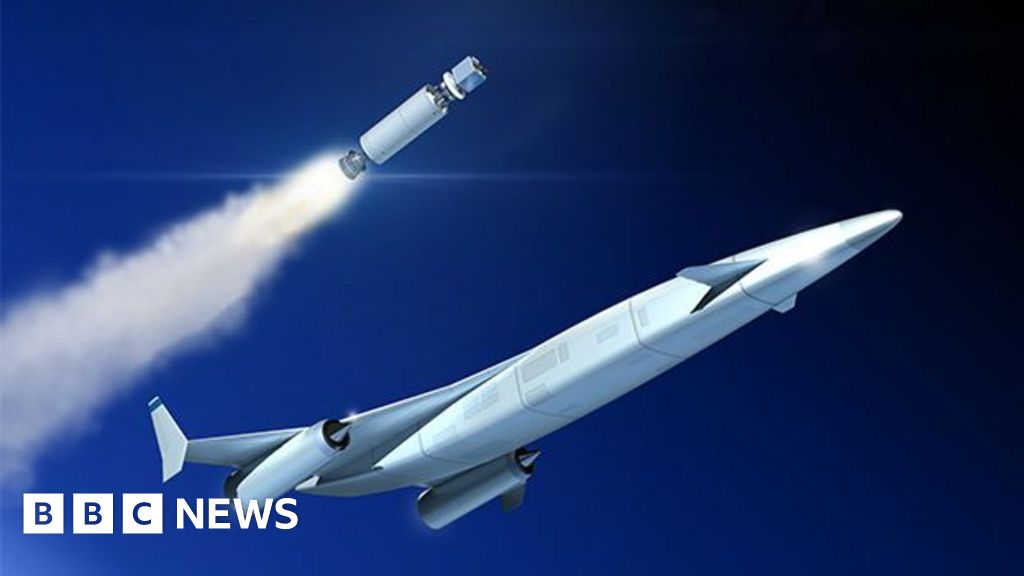ARTICLE AD BOX
image sourceVirgin Hyperloop
image captionHow the pods may look, according to Virgin HyperloopVirgin Hyperloop has released a video illustrating its plans for passenger pods using magnetic levitation to travel above 1,000km/h (600mph) through tubes containing a near-vacuum.
Rather than connecting to form a train, the pods will travel in convoy, able to leave and join a static track individually, like cars on a motorway.
Last year, Virgin Hyperloop completed its first crewed test-track journey, reaching speeds of 170km/h.
But a critic says the video is "hype".
Railway engineer and writer Gareth Dennis tweeted it was "a glossy video that says, 'Everything works and is great,' with nothing more than some CGI [computer-generated imagery] and a giant winky face".
He questioned the vision of carrying "tens of thousands of passengers per hour per direction", which "would require a thousand or more pods travelling every hour - or one every three seconds", he told BBC News.
The BBC put that point to Virgin Hyperloop.
"This is a great question and is at the crux of what makes a hyperloop system unique from other modes," Hyperloop replied. "Unlike trains that are physically tied together to move large groups of people, our pods are digitally connected together closer to trucking convoys on a road.
"Convoying enables our system to provide the on-demand convenience and direct-to-destination service of cars, while realizing the efficiencies and higher throughput of trains."
Government funding
Virgin Hyperloop says the battery-powered pods will have "zero direct emissions".
In July, Hyperloop TT, another of the companies seeking to make a commercial reality of the hyperloop concept, unveiled its vision for a HyperPort - to rapidly move shipping containers using the technology.
And the hyperloop concept was included in the US Infrastructure bill recently passed by the Senate, opening up the possibility of Federal government funding.
But there are still questions about its practicality and how financially it can build the extensive network of evacuated tube lines while keeping costs competitive with rail and air fares.
Virgin Hyperloop said the answer was leveraging "technological developments" to keep costs down and returns high, and drawing on the public purse.
"We see enormous potential to attract investment from the private sector, leveraging public investments", it said.

 3 years ago
104
3 years ago
104








 English (US) ·
English (US) ·